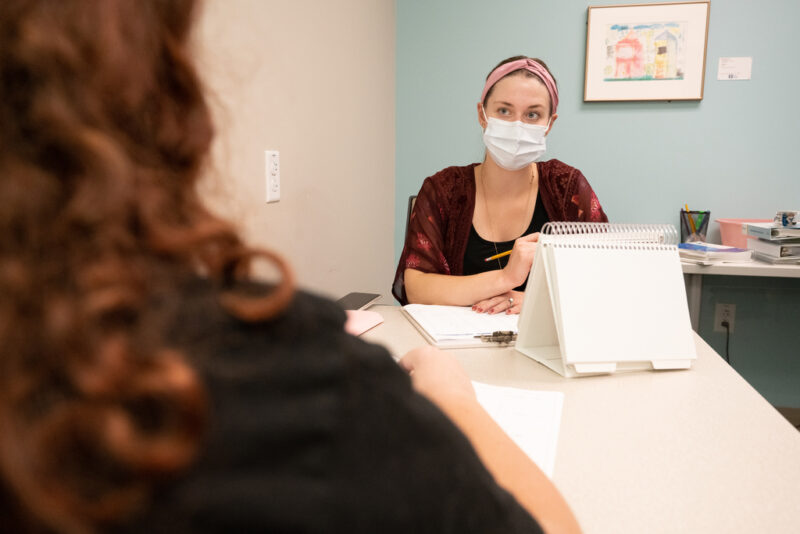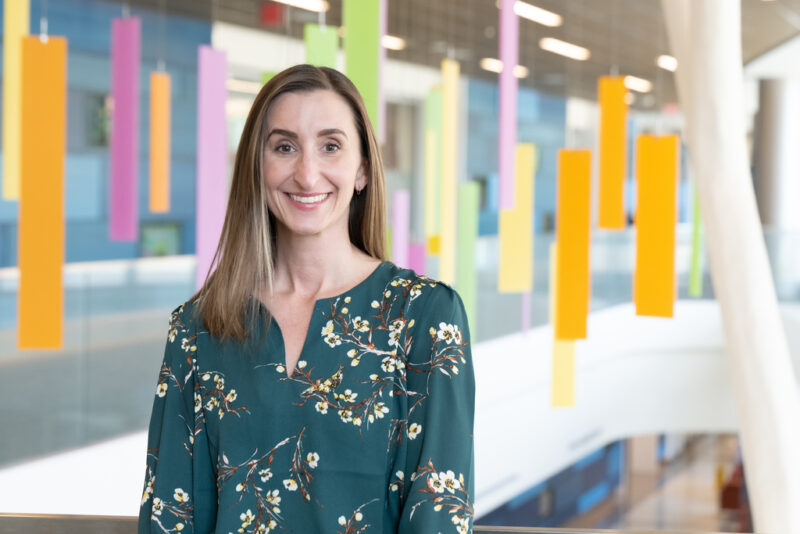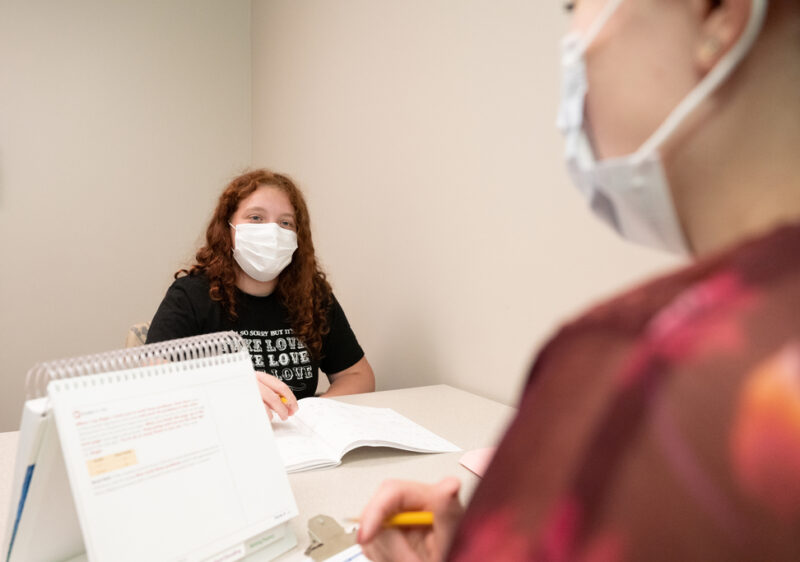Say “doctor” or “nurse” and you’ve got a pretty good idea of how these professionals fit into Akron Children’s care team. How about “psychometrist?” That job title may be less familiar to most.
A psychometrist is responsible for the administration and scoring of cognitive, psychoeducational, developmental and neuropsychological tests.
At Akron Children’s, psychometrists are based in NeuroBehavioral Health/ NeuroDevelopmental Science Center but interact with a variety of different providers.

Psychometrists lead patients through a variety of assessments, helping with diagnoses and surgical, treatment and educational plans.
If, for example, your child is being assessed for a possible diagnosis, such as autism, the psychometrist plays a valuable role in the process.
But helping to confirming diagnoses is just one of their many roles.
Their testing gives neurosurgeons the best information possible before and after surgery to remove a tumor or target an area causing seizures. Nephrologists may call upon them for information about neurobehavioral changes before and after a kidney transplant.
They test to see how children are doing after a long stay in rehab, after a premature delivery or to measure the impact of a congenital heart defect, genetic condition, or traumatic brain injury. And they can play a key role in helping providers, parents and teachers develop Individualized Education Plans (IEPs) and set goals for academic success.
They typically have degrees in psychology or related fields. A psychometrist acts on behalf of a testing psychologist’s license, so a referring provider would not refer a patient directly to psychometry for testing, but to an assessment clinic or neuropsychologist. And while the psychometrist tests the patient, it is the licensed psychologist that interprets and diagnoses the patient.
Betsy Newlon joined Akron Children’s as a psychometrist after working as a Head Start pre-school teacher. After five years in the role, she recently transitioned into the role of clinical coordinator for the department. She loved the interaction with children and parents and helping providers get the information they need to develop treatment plans and offer other recommendations.

Betsy Newlon is clinical coordinator for psychometry at Akron Children’s.
While some tests look more like the common image of “test,” using pencil and paper or a computer screen, many are social-skills based.
Autism is a social skills-based assessment. The psychometrist will bring out toys and other interactive activities. She will closely observe the child’s play and interaction with his caretaker and the new people he is meeting.
Tests can take less than an hour or a full day depending on the age of the patient and the question being explored. A common assessment to look for developmental delays in, say, an 8-month-old child who was born premature, might take 45 minutes.
On the other hand, assessments for children with, say, epilepsy, Turner syndrome or neurofibromatosis, can be 6 or 7 hours with time for lunch and as many breaks as needed.
IQ testing would look at expressive language (vocalizations, expressions, word range), problem solving skills (looking at a picture and asking the child to recreate it with blocks), memory (reciting a string of numbers), and reasoning (what’s a common link between two different words or pictures).

The hospital uses more than 30 standardized assessments that can range from less than an hour to full days.
Newlon estimates the team works with 30-plus different assessments. They are standardized, so every children’s hospital and every psychometrist follows the same protocols for each patient.
“Yet, no two children are alike,” Newlon said. “We know some kids take longer to formulate a response or need multiple breaks. Some kids take longer to warm up and establish that rapport. We see one patient a day, and he or she is our sole focus. We want to make this the best experience possible.”
The psychometrist checks in with the licensed psychologist several times during a long assessment, and at the conclusion, writes a detailed behavioral observation. Then the test is scored, reviewed by a peer for accuracy, and shared with referring providers and, ultimately, the parents.
It’s common for parents to worry about testing, not only if their child is rested and ready for it but that it will, indeed, yield the information needed for such important decisions as a surgery plan or diagnosis.
“We prioritize that rapport,” said Newlon. “I often had parents tell me how surprised they were to see me get not only the information we set out to get, but even more.”










